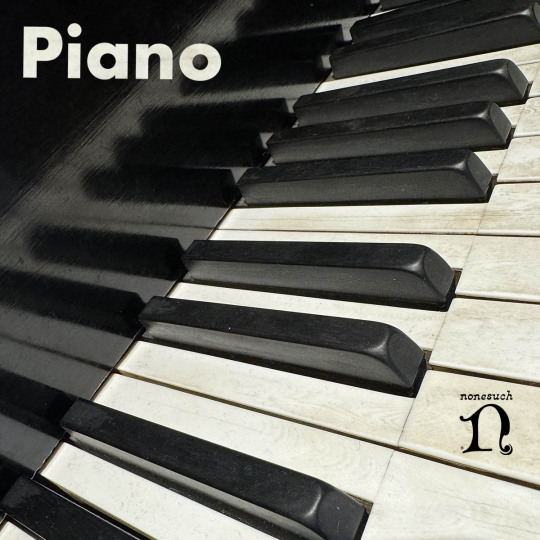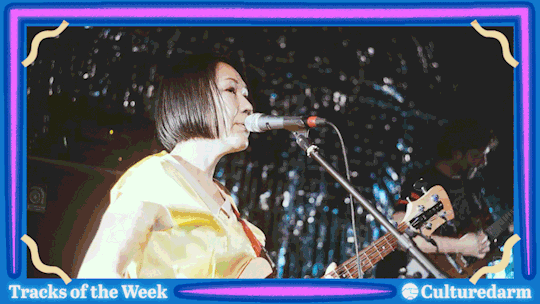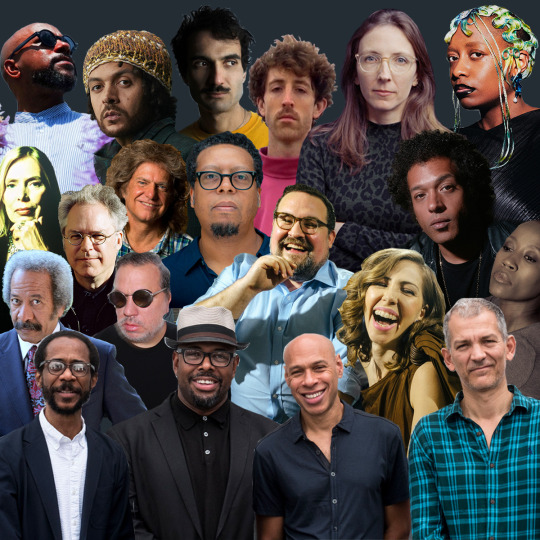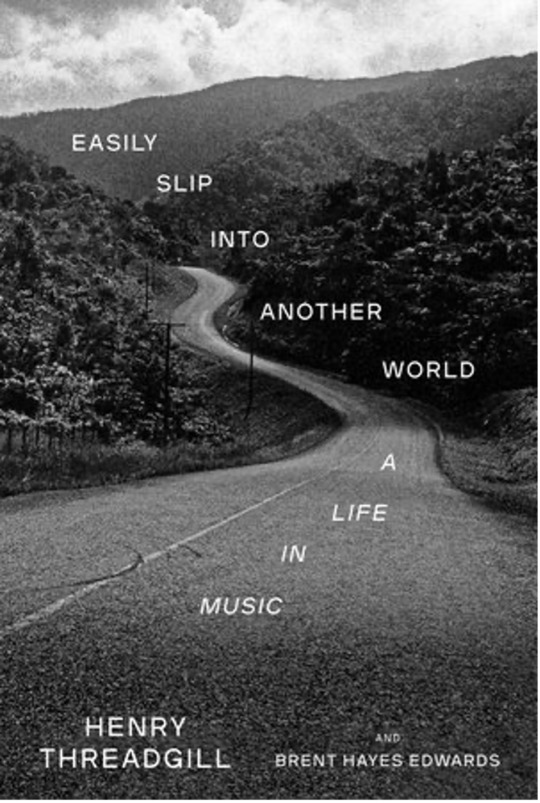#fred hersch
Text
Kurt Elling „Wildflowers, vol.1”
Edition Records, 2024
Od pomysłu, do wydania płyty w 7 dni? To przecież niemożliwe! No więc okazuje się, że owszem możliwe. I do tego można stworzyć tym czasie coś wyjątkowego.
Album dostępny jest na Bandcampie
Idea zakiełkowała w głowie Kurta Elinga w piątek 23 sierpnia. Trzy dni później, w poniedziałek, w studiu nagraniowym wokalista spotkał się z fantastycznym pianistą Sullivanem Fortnerem…

View On WordPress
#Cecile McLorin Salvant#Edition Records#Fred Hersch#Johnny S. Black#Jon Hendricks#Kurt Elling#Mercer Ellington#Michiel Borstlap#Mumford and Sons#Norma Winstone#Sullivan Fortner#Wayne Shorter
0 notes
Text

Happy Piano Day! We're celebrating with a playlist of Nonesuch piano recordings from across the decades by Brad Mehldau, Timo Andres, Jeremy Denk, Richard Goode, Randy Newman, Tigran Hamasyan, Robin Holcomb, Allen Toussaint, Fred Hersch, John Adams, Steve Reich, Philip Glass, and more. You can hear it on Spotify and Apple Music here.
#piano#piano day#brad mehldau#timo andres#richard goode#randy newman#tigran hamasyan#robin holcomb#allen toussaint#fred hersch#john adams#steve reich#philip glass#nonesuch#nonesuch records#nonesuch 60
1 note
·
View note
Photo

The trumpeter Enrico Rava and pianist Fred Hersch interpret the lilting romance of ‘The Song Is You’ by Oscar Hammerstein and Jerome Kern, the saxophonist Sam Gendel slips inside the squelching bass and cascading shower head of ‘Anywhere’ by 112 and Lil’ Zane, and Lori Goldston goes long with her Pacific Northwest collaborator Greg Kelley for the visceral strains and gossamer improvisations of All Points Leaning In. Plus Skech185, Jeff Markey, Lia Kohl, Deerhoof, and Vladislav Delay.
https://culturedarm.com/tracks-of-the-week-22-01-23/
#music#new music#best new music#tracks of the week#vladislav delay#sam gendel#meshell ndegeocello#lori goldson#greg kelley#kelela#skech185#jeff markey#deerhoof#lia kohl#enrico rava#fred hersch#jazz#hip hop#indie#field recordings#experimental#ambient
1 note
·
View note
Video
undefined
tumblr
https://escapistblogmusic.wordpress.com/2023/03/03/alive-at-the-village-vanguard-by-fred-hersch-esperanza-spalding/
0 notes
Text










Fred Hersch and Esmeralda Spalding at Troy Music Hall Feb 2023
first and 10 edition
0 notes
Note
hello! you’re the person who posted the little suede shoes spotify link like a week or so ago! thank you for your service i’ve had that album on repeat ever since.

mission accomplished
#we are dancing together!!#edit: it's esperanza spalding and fred hersch alive at the village vanguard for anyone wondering
3 notes
·
View notes
Video
youtube
Fred Hersch Trio: Wichita Lineman | Elbphilharmonie Hamburg
Fred Hersch – Piano
John Hébert – Bass
Eric McPherson – Drums
4 notes
·
View notes
Text
Playlist ~The Most Beautiful Sound Next To Silence(静寂の次に美しい音)~
#1.トレイン・オブ・ソート
#2.ゾートロープ
youtube
#3.Dominic Miller – Water (from the album Silent Light) | ECM Records
youtube
#4.The Dream Thief
youtube
#5.The Fred Hersch Trio - For No One (McCartney)
#6.,Aaron Parks, Ben Street, Billy Hart: Song for Sashou
youtube
#7.Ryuichi Sakamoto - "andata" (from "async")
#youtube#jazz#jazz music#smooth jazz#ビジネス#自己啓発#自己分析#自己実現#教養#音楽好きな人と繋がりたい#音楽家#音楽#Spotify#my playlist#music playlist#spotify playlist#imaginative play#playing#playlist#concept playlist#character playlist#favorite songs#music recs#song of the day#songs
2 notes
·
View notes
Video
youtube
The Art of The Duo (Fred Hersch & Anat Cohen)
2 notes
·
View notes
Text
Fred Hersch "Silent, Listening"
ECM, 2024
Wydany około dwóch lat temu duetowy album Freda Herscha i Enrico Ravy, był dla wybitnego pianisty pierwszym tytułem w katalogu ECM. Współpraca Herscha z Manfredem Eicherem była na tyle satysfakcjonująca dla obu stron, by zaowocować kolejnym wydawnictwem.
Obok unikalnej więzi z producentem, Hersch docenił również miejsce, w którym dokonane zostały nagrania z Enrico Ravą. Plan na…
#Alec Wilder#Billy Strayhorn#Duke Ellington#ECM#Fred Hersch#Oscar Hemmerstein II#piano solo#Robert Rauschenberg#Russ Freeman#Sigmund Romberg#Sonny Rollins
0 notes
Text

Happy International Jazz Day! Celebrate with our newly updated Nonesuch: Jazz playlist of music by Cecile McLorin Salvant, Brad Mehldau, Mary Halvorson, Makaya McCraven, Yussef Dayes, Joshua Redman, Jeff Parker, Tigran Hamasyan, Rachael & Vilray, Rob Mazurek, Ben LaMar Gay, Sam Gendel, Pat Metheny, Bill Frisell, Allen Toussaint, Fred Hersch, and more. You can listen on Spotify and Apple Music here.
#international jazz day#jazz#cecile mclorin salvant#brad mehldau#mary halvorson#makaya mccraven#yussef dayes#joshua redman#jeff parker#tigran hamasyan#rachael & vilray#rob mazurek#ben lamar gay#sam gendel#pat metheny#bill frisell#allen toussaint#fred hersch#nonesuch#nonesuch records
1 note
·
View note
Text
Listed: Kid Millions and Sarah Bernstein

Photo by Caleb Bryant Miller
Kid Millions and Sarah Bernstein both have long CVs in experimental music, Millions as the drummer for Oneida and Man Forever and Bernstein as an avant garde composer and performer with the VEER Quartet, the avant-jazz Sarah Bernstein Quartet, and solo as Exolinger. They’ve been improvising together for roughly a decade, building mesmerizing sonic architectures out of free-form drumming, wild violin pyrotechnics and cryptic spoken word. Of their latest, Live at Forest Park, Margaret Welsh writes, “Bernstein and Colpitts weave sound together into an unsettling fever dream-like warp, growing larger and smaller. All you can do is lay back and surrender to the waves.” Here are some things that inspire the two.
Kid Millions
Billy Harper Quintet — In Europe (Soul Note)
youtube
While I admire and enjoy all of the Quintet albums I’ve heard, this particular one captures something ineffable and transcendent. The Quintet’s personnel changes throughout Harper’s career but this particular session has the tunes, the passion, the reaching and the constant surprises that make it my most listened to album in the last ten years. Fred Hersch is especially sympathetic and powerful on this too. I really want to see this group ASAP. Billy Harper is still playing!
Pete La Roca — Basra (Blue Note)
youtube
La Roca is a drummer who is unappreciated but his playing and compositions stand out. This album gets the slight nod over the legendary Turkish Women at the Bath because it was recorded well. He’s in the same league as Elvin and also wrote some incredible tunes.
George Adams & Don Pullen Quartet — City Gates (Timeless) (but any record is cool)
youtube
I’m leaning on big tenor sounds these days, and George Adams stands in the same universe as Billy Harper because he plays the range of the instrument — there are gorgeous melodies set alongside blistering free blasts. Don Pullen is incredible as well. Near the end of his life he started to write more songs with hooks, but he shreds like Cecil Taylor. I’m digging the stuff that straddles the line between songs and free these days.
Henry Threadgill with Brent Hayes Edwards — Easily Slip Into Another World (memoir)

This is a brand-new book, and I’m finding lots of inspiration and great advice within the pages. His discussion about how young musicians need to find their way within the tradition, among their peers, and on their own terms applies to all traditions, rock included. In order to really engage with the music, you have to play all the time, with other people. You have to play covers, and you have to play in front of audiences. And you need to be fired. I certainly have!
Marcus Gilmore
youtube
Such an incredible, deep, drummer. You should go see him ASAP!
Sarah Bernstein
Music/poetry films I like:
When It Rains — Charles Burnett (1995)
youtube
Charles Burnett’s work speaks to me as a whole. The films I’ve seen slip into a continuous flow of poetic story/documentary. When It Rains is a 13-minute short film that takes place on a festive New Years Day, but January’s rent needs to be paid. Musicians are among the characters and sound, and it plays like a jazz improvisation. A particular highlight is seeing instrument-maker Juno Lewis on-screen playing his double bell trumpet. The story’s ending will have vinyl collectors smiling.
The Connection — Shirley Clarke (1961)
youtube
Before discovering this movie, I knew director Shirley Clarke from her later film "Ornette: Made in America," also a must-see. The Connection is a film version of Jack Gelber’s play for the burgeoning Living Theatre. Most of the actors from the stage play, and all the musicians, are also in the film. The band is swinging: Freddie Redd composer/pianist, Jackie McLean alto sax, Michael Mattos bass, Larry Ritchie drums. The musicians also act in the story, and even the turntable — playing Charlie Parker’s Marmaduke — provides a key recurring motif in the film.
Poetry In Motion — Ron Mann (1982)
vimeo
Poetry in Motion, By Ron Mann from bob stein on Vimeo.
The other movies on this list are ones I’ve seen relatively recently, but Poetry In Motion I watched in an art-house cinema as a teenager, and it had a big impact on me. The documentary shows 40 poets and performers, including Jayne Cortez, Dianne Di Prima, Helen Adam, William S. Burroughs, Amiri Baraka, Allen Ginsburg, Jim Carroll, John Cage, Robert Creeley, Miguel Algarin, to name a few! Also check out Ron Mann’s first feature film: Imagine The Sound (1981), a superb profile of Cecil Taylor, Archie Shepp, Bill Dixon and Paul Bley.
Desolation Center — Stuart Swezey (2018)
youtube
The concert footage is so good. Highlights are Einsturzende Neubauten and Survival Research Labs literally blowing up the desert in Joshua Tree. Also Sonic Youth, Minute Men, Swans, all in DIY festivals and shows taking place in outdoor remote locations in 1980’s SoCal.
Amazing Grace — Alan Elliott/Sydney Pollack (2018)
youtube
Aretha Franklin and choir hold a live concert recording session of her gospel album Amazing Grace over two days in 1972. This is not a documentary with talking heads or explanation, rather the action is all in the music and spirit. Aretha Franklin’s genius and deep interaction with the listeners and choir is riveting and inspiring, even more so with repeat viewing.
#dusted magazine#listed#kid millions#sarah bernstein#billy harper quintet#pete la roca#george adams and don pullen quartet#henry threadgill#marcus gilmore#charles burnett#shirley clarke#ron mann#stuart swezey#alan elliott#sydney pollack
4 notes
·
View notes
Text
CONSIDERING KEITH JARRETT’S AMERICAN QUARTET
At the end of February, pianist/critic Ethan Iverson called his Transitional Technology/Do the Math readers’ attention to an YouTube interview with Keith Jarrett conducted by Rick Beato. Besides archival performances, commentary, and conversation, there were incredibly poignant latter-day one handed performances. Post-strokes the genius is still there, but it is cut literally in half.
Keith Jarrett was hugely influential on me as a new jazz fan. As with so many, that he played with Miles Davis (electric piano and organ (!?!) on at Fillmore and Live-Evil) put him on my radar. I had the Bremen/Lausanne solo concerts even before the justly legendary Koln. I had Belonging by the European Quartet and Reflections and Fort Yawuh with Dewey Redman, Charlie Haden, and Paul Motian. I also really liked the album with Gary Burton from this same period. More on that later.
I liked my albums and played them frequently. When the 10 discs of Sun Bear came out as the next solo concerts, that was too expensive for me to be a completist. As remarkable as Bremen/Lausanne and Koln were, I felt I knew what Jarrett was up to. Those vamps, melodies, gospel elements, free breakdowns were also present in the band records. It was all conceptually fascinating, but the experiments and juxtapositions were always adventurous but not always successful. In the moment, there too I thought I had a bead on what was going on, but didn’t think I needed more.
When I returned to the music, the Standards Trio with Gary Peacock and Jack DeJohnette better suited my aesthetic. I found “my” albums again and gave them a single fond refamiliarizing listen. I have now listened to all the American Quartet albums and a 3 1/2 hours playlist derived from Iverson’s extensive, tune-by-tune review of the band’s entire output. He is quite impressed with the later Shades of Jazz and some of Bya-Blue too.
But with those exceptions, I don’t think I missed that much and so bristle a little bit at the suggestion that this was the last great band. As a contrarian, I nominate the Dave Holland Quintet and maybe Woody Shaw’s band. But it was something special—a young phenom recruits the elders Paul Motian from THE Bill Evans Trio and Dewey Redman and Charlie Haden from Ornette Coleman and ambitiously mashes them up with elements of his own aesthetic from the solo concerts.
It’s an interesting mix—Motian’s free sense of time up against Haden’s solidity with Redman’s earthy primitivism at the service of Jarrett’s capacious vision. Again, it’s not always successful, but they are unavoidably interesting.
Iverson doubles down on a judgment drawn from initial reportage that Jarrett didn’t do his bebop homework because of this:
“In the Beato video, Jarrett says that when he was finding his voice, he didn’t want to play modal like McCoy Tyner. He then says he wanted to be more “Bach-ian,” meaning voice-leading in the contrapuntal European tradition like Bach.”
So, yes, Jarrett has a cerebrality that maybe wears thin or that prompts admiration first with affection following—or not.
But the other interesting idea is that there is a Midwestern “country” or at least folk aesthetic that draws on major chords. Iverson draws a line that also includes Pat Metheny, Charlie Haden, Gary Burton, and even Ornette—and maybe Fred Hersch from Cincinnati belongs too. And that makes the Jarrett/Burton album stand out as probably the best Jarrett band album. Burton and Steve Swallow with his compositions structure and rein in Jarrett while he adds to a tough appealing set.
I am left after this valuable exercise with fond memories and admiration for Keith Jarrett, but my affection still lags.
2 notes
·
View notes
Link
The pianist gets intimate, on stage and in his latest albums
3 notes
·
View notes